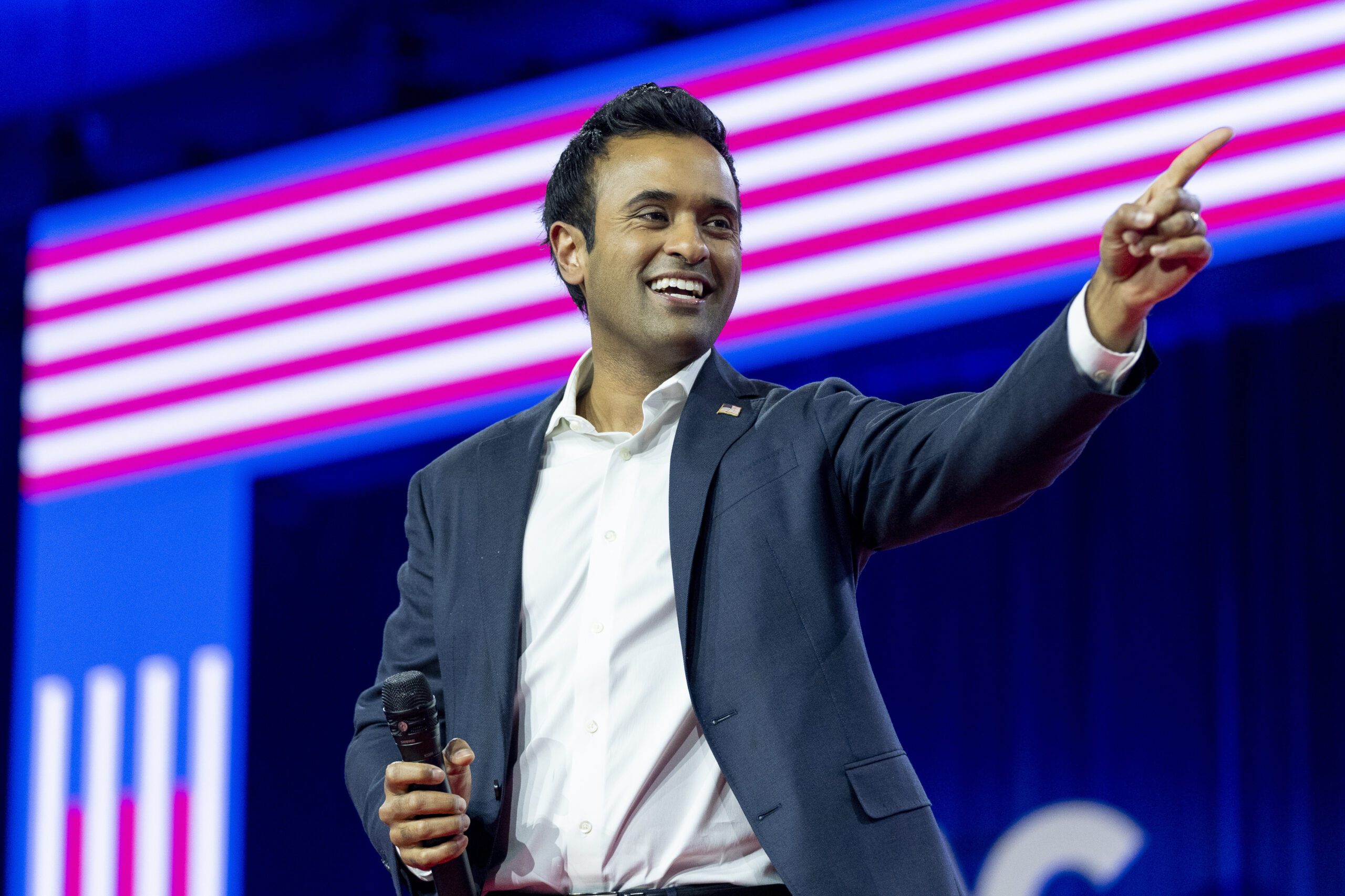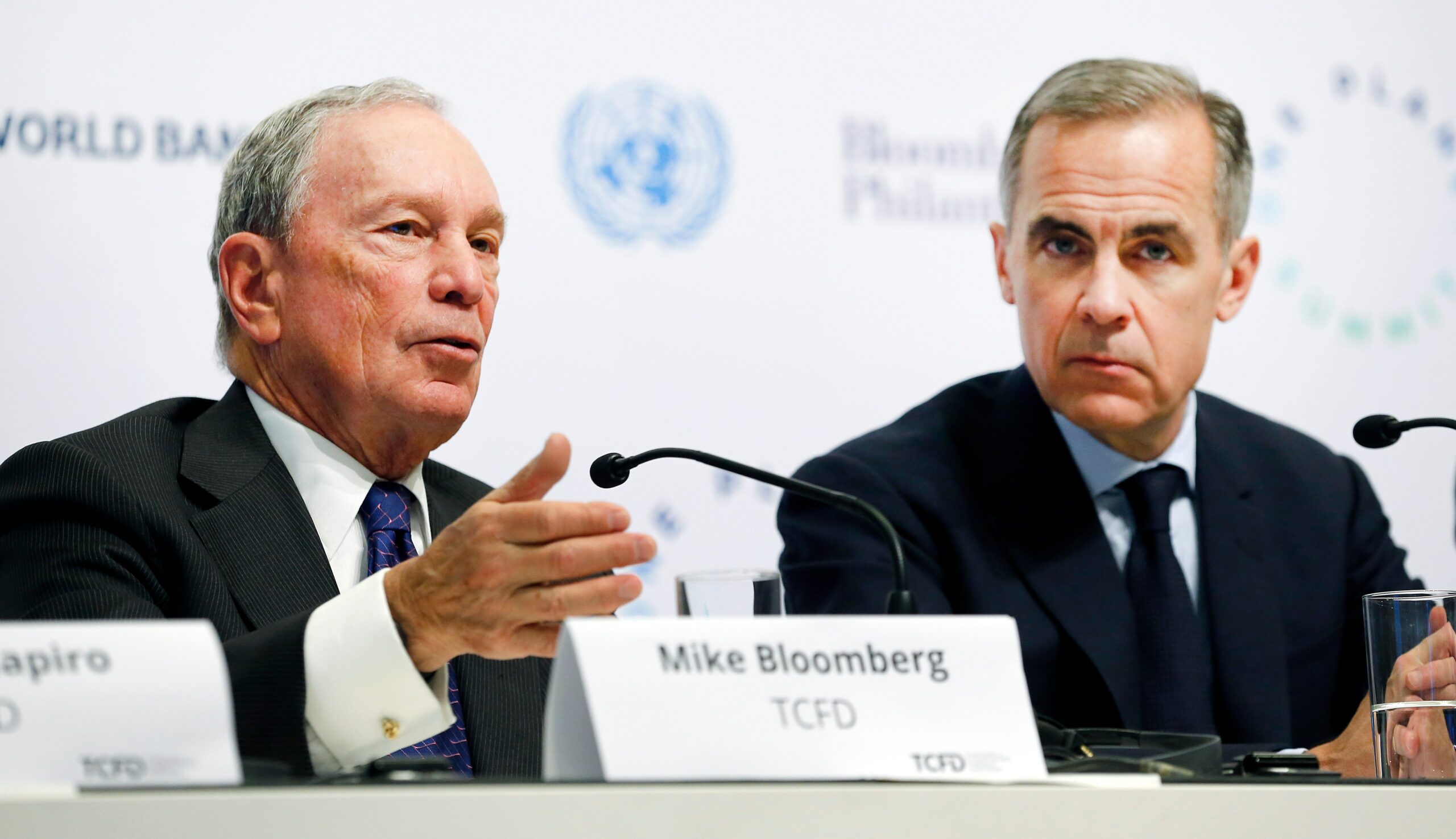Asked to describe the vibe shift on Wall Street since Donald Trump’s re-election last November, a senior hedge fund manager replies simply with a link to Landman, a new drama series on the Paramount+ streaming service.
Starring Billy Bob Thornton and Jon Hamm, and released just under a fortnight after Trump’s resounding victory, it follows the boom-time skirmishing of wildcat oil explorers in West Texas — think Mad Men for fossil fuels.
Trump’s promises to rescind Joe Biden’s “industry-killing” environmental rules, pull America out of the 2015 Paris climate accord again, cut taxes and slash regulation on the financial sector have triggered what the same hedge funder says is “a risk-on unleashing of animal spirits”. Shares in oil majors, banks and tech giants are rocketing.
Harold Hamm, an oil and gas billionaire who poured more than $4.3 million into political action committees supporting Trump, will celebrate the 47th president’s inauguration on Tuesday with a daytime party on the roof of the Hay-Adams hotel, a block away from the White House. Mark Zuckerberg, whose social media empire, Meta, gave $1 million to Trump’s inaugural fund, will co-host a black-tie reception in the evening. During the ceremony, Zuckerberg is expected to be seated with Jeff Bezos, whose Amazon also gave $1 million to the fund and whose Washington Post at the last minute declined to endorse Kamala Harris.
The love-in between the former property developer once viewed as a joke by New York’s beau monde and America’s corporate elite has been accompanied by a bonfire of the initialisms. DEI, diversity, equity and inclusion employment policies; ESG, doing business with environmental, social and governance-based concerns to the fore; and LGBTQ+ or, at least, some of the more superficial gestures of support companies made towards lesbian, gay, bisexual, transgender and queer people — were already falling out of favour in boardrooms as Covid-era utopianism buckled under the hard realities of inflation, rising interest rates and war in Ukraine.
Advertisement
Now they are being engulfed in the flames of the second Maga revolution.
“There had already been a decline in the use of awkward, inelegant and inconsistent nomenclature,” says Jeffrey Sonnenfeld, senior associate dean for leadership studies at Yale School of Management, referring to ESG in particular. “An industry of opportunists and profiteers grew up around it and created a clunky bureaucracy of self-interested officials … If you look at things falling apart, Trump will be getting the credit for having catalysed it, but a large movement of companies away from this nomenclature was already under way.”
Members of far-right Proud Boys group protest against Drag Queen Story Hour outside a library in Queens, New York in 2022
YUKI IWAMURA / AFP
As long ago as July 2023, the Wall Street Journal reported on the rise and fall of the chief diversity officer, noting that thousands of diversity-focused workers had been laid off in the previous year. It said the trend was likely to continue after the US Supreme Court (tilted decisively to the right by the three judges Trump appointed in his first term) ruled that affirmative action in university admissions was unconstitutional and a group of Republican lawyers warned America’s biggest companies against using race-based preferences in hiring and promoting. Last year, a dozen companies including Motorola dropped diversity criteria from executive bonus plans after pressure from Strive, the anti-ESG asset manager founded by the Trump ally Vivek Ramaswamy. More, including Ford, Harley-Davidson and Molson Coors, said they would stop doing some diversity work after being targeted by the self-styled “anti-woke” activist Robby Starbuck.

Vivek Ramaswamy
AP
But the return of Trump — who has suggested that white people should be compensated for “discrimination” they suffered under Biden — has set off a scramble that represents the opposite of the corporate response to the murder of George Floyd in 2020. A few weeks after the election, Walmart said it would stop funding a racial equity centre it set up after Floyd’s killing, end special training for staff, cease to consider race and gender when granting supplier contracts and remove LGBTQ+ items marketed by third-party retailers — such as chest binders — from its website.
The most dramatic U-turn came from Zuckerberg, who spent Thanksgiving with Trump at his Mar-a-Lago resort in Florida and was apparently told by Trump aide Stephen Miller that the incoming president would go to war on DEI culture. Having already loosened speech restrictions on its apps and jettisoned fact-checking practices — an overhaul that emerged shortly after the resignation of former deputy prime minister Nick Clegg as head of public policy — Meta announced that it would scrap its main DEI programmes.
Advertisement
A memo from Janelle Gale, the social media giant’s vice president of human resources, said that “the legal and policy landscape surrounding diversity, equity and inclusion efforts in the United States is changing”. She observed that the term DEI had become “charged”.
Craig Coben, a former senior investment banker, says many bosses will be motivated to alter their stance on issues such as DEI primarily because of shifting legal sands. “The thing in the States is that people tend to use courts to advance policy objectives,” he says. “That’s tended to be used by one side [the left], and now the other side [the right] is going to do the same thing… Businesses’ priority is not to expose themselves and get sued. You have to work back from that to understand what they’re doing.”
There is no doubt, though, that Trump has changed the general atmosphere. The day before Meta’s announcement, Elon Musk, his chief business outrider, reposted a social media message claiming that the Los Angeles Fire Department’s response to the Southern California wildfires had been hampered by its alleged preoccupation with DEI policies. “DEI means people DIE,” the Tesla tycoon said, without providing evidence.
On the day of Meta’s reversal, Zuckerberg took to the Joe Rogan Experience podcast, speaking in favour of “masculine energy” and remarking that “a lot of the corporate world is pretty culturally neutered”. Facilities managers at Meta’s officers were instructed to remove tampons from the men’s toilets, put there for nonbinary and transgender employees.

Zuckerberg and Rogan
The backlash against ESG has been longer-running. The peak of the ESG movement — in which investors ordered companies to reduce carbon emissions and bear in mind stakeholders beyond those with purely financial interests — can be dated to 2021, when an activist won three board seats at ExxonMobil by arguing that the oil and gas giant needed to do more to transition away from fossil fuels. The campaign was backed by BlackRock, the world’s biggest investment institution with $11.5 billion under management. The year before, BlackRock had swung its weight behind ESG. Larry Fink, its co-founder and chief executive, declared that “climate change is different” and promised to put “sustainability at the centre of our investment approach”.
Advertisement
Ramaswamy singled Fink out for criticism in a speech to a conservative network in September 2021, saying that the fund management boss was telling companies “to advance a particular social agenda” (Ramaswamy later called Fink “king of the woke-industrial complex”).
Fink, who had to have his personal security increased as he was dragged into the culture wars, eventually said he would stop using the term ESG as it had become “weaponised”. But before then, red states began pulling investments from BlackRock. West Virginia was the first, in January 2022. By the end of that year, political-protest redemptions from BlackRock amounted to $3 billion (in fairness, they were dwarfed by inflows from elsewhere).
BlackRock’s name has become so loaded in conservative circles that a Texas district judge this month ruled that American Airlines had failed workers just by selecting BlackRock, which he said was tainted by “ESG activism”, to manage part of its pension scheme.
Meanwhile, anti-ESG legislation by red states multiplied from six bills enacted in 2022 to 29 in 2023, according to the law firm Ropes & Gray. “When the anti-ESG movement started, I honestly thought it was going to struggle, but it’s been enormously successful,” says Joshua Lichtenstein, a Ropes & Gray partner.
Trump fired a broadside at ESG in a video on his Truth Social network in February 2023. He said the movement was designed to “funnel your retirement money to the maniacs on the radical left”, adding: “These people are sick. These poorly performing woke financial scams are radical-left garbage that would never be funded on their own.”
Advertisement
Trump is expected to get rid of rules brought in by the Securities and Exchange Commission, Wall Street’s regulator, requiring companies to disclose climate-related risks, even though they were already watered down. They were championed by the SEC chairman Gary Gensler, who is hated by the Trump camp and will stand down on Monday rather than allow the new president to fire him.
Ahead of Trump’s second inauguration, all six of America’s biggest banks quit a net-zero group ultimately run by the billionaire former New York mayor Mike Bloomberg and Mark Carney, the former Bank of England governor running to lead the governing Liberal Party in his native Canada. BlackRock resigned from a similar group for asset managers, saying its membership had “caused confusion… and subjected us to legal inquiries from various public officials”.

Bloomberg and Carney
GETTY IMAGES
Another set of initials likely to go up in smoke is WFH. Musk and Ramaswamy wrote a joint op-ed last November saying that Trump might force public-sector workers to go back to the office five days a week. The end of working from home for federal employees “would result in a wave of voluntary terminations that we welcome”, they said. Goldman Sachs has long insisted that staff do five days a week in the office. JP Morgan is expected to demand a full return to the office in the coming weeks.
The routing of the DEI-ESG-LGBTQ+ consensus has caused outrage in some quarters. “It’s very distressing that corporate executives are caving in advance [of Trump’s second term] and pulling back from what they know is responsible investing,” says Brad Lander, who oversees $285 billion of public-sector pensions as New York City comptroller. “Climate risk is financial risk. It’s right before our eyes. Los Angeles is on fire. Absconding from responsibility for attending to the risks for political purposes is both craven and irresponsible.”
Some believe the situation is more nuanced, however: that, just as there was a performative element to companies’ embrace of DEI and ESG a few years ago, there is a performative element to their newfound distaste for them. In its letter to clients explaining its decision to leave the Net Zero Asset Managers initiative, BlackRock said it continued to see the energy transition as “a megaforce shaping economies and markets”. Analysts at the bank Jefferies suggested that corporate work on topics such as climate change would continue, but would probably not be branded as ESG — a trend known as “greenhushing”.
Advertisement
A recent survey of 300 investors by the advisory firm Edelman Smithfield found that while 54 per cent agreed ESG would be largely defunct as a term in three years’ time, a majority said that ESG-type disclosures by companies were still useful. “Trump being president again doesn’t mean climate change doesn’t exist any more — it just means it’s less marketable,” says a communications professional who specialises in the financial sector.
In other words, the sets of initials loathed by the Maga crowd are crumbling into ashes, as is the virtue signalling that accompanied their use. But the objectives they clumsily represented may yet endure the challenges of the coming four years.
This post was originally published on here






